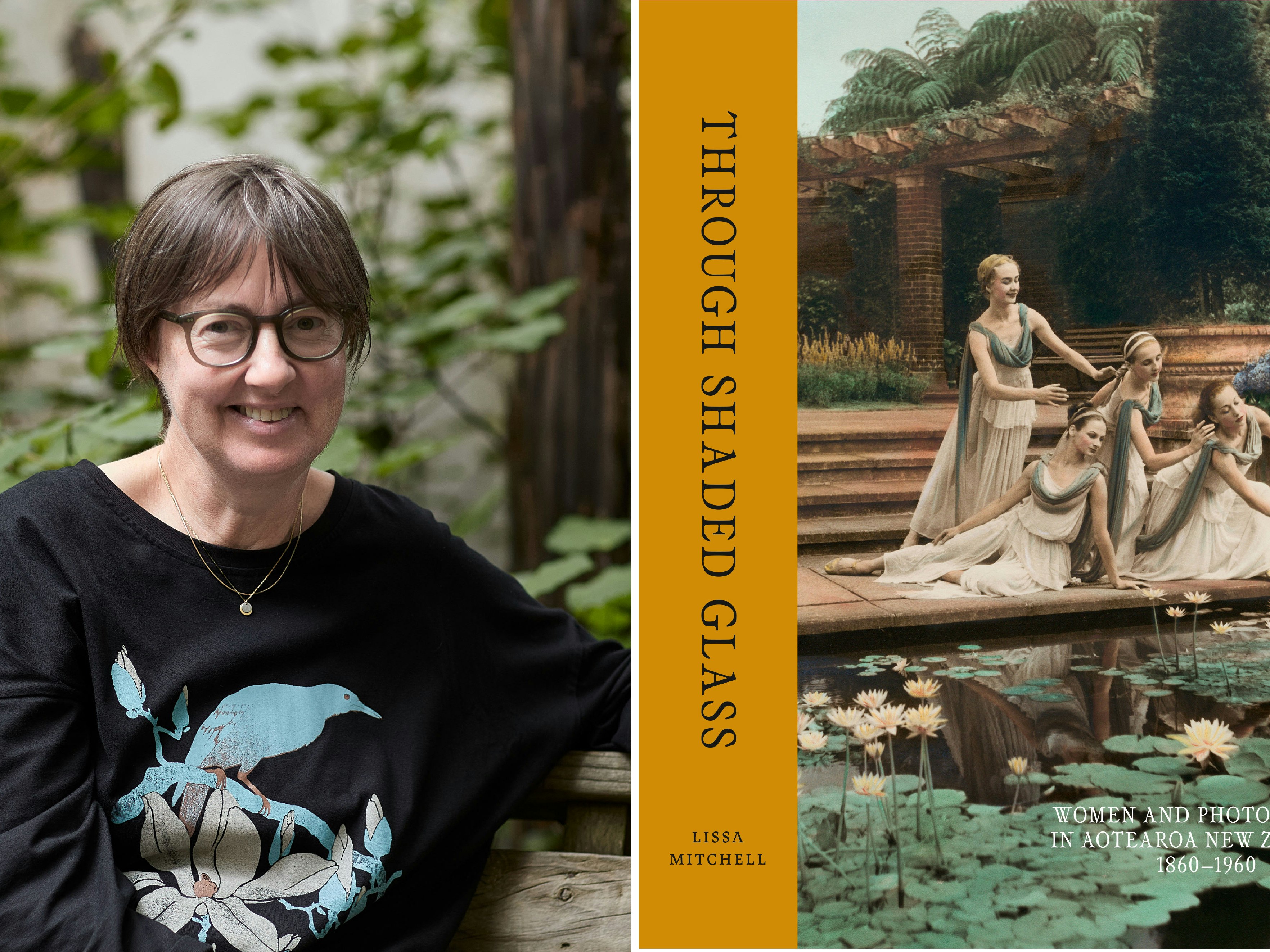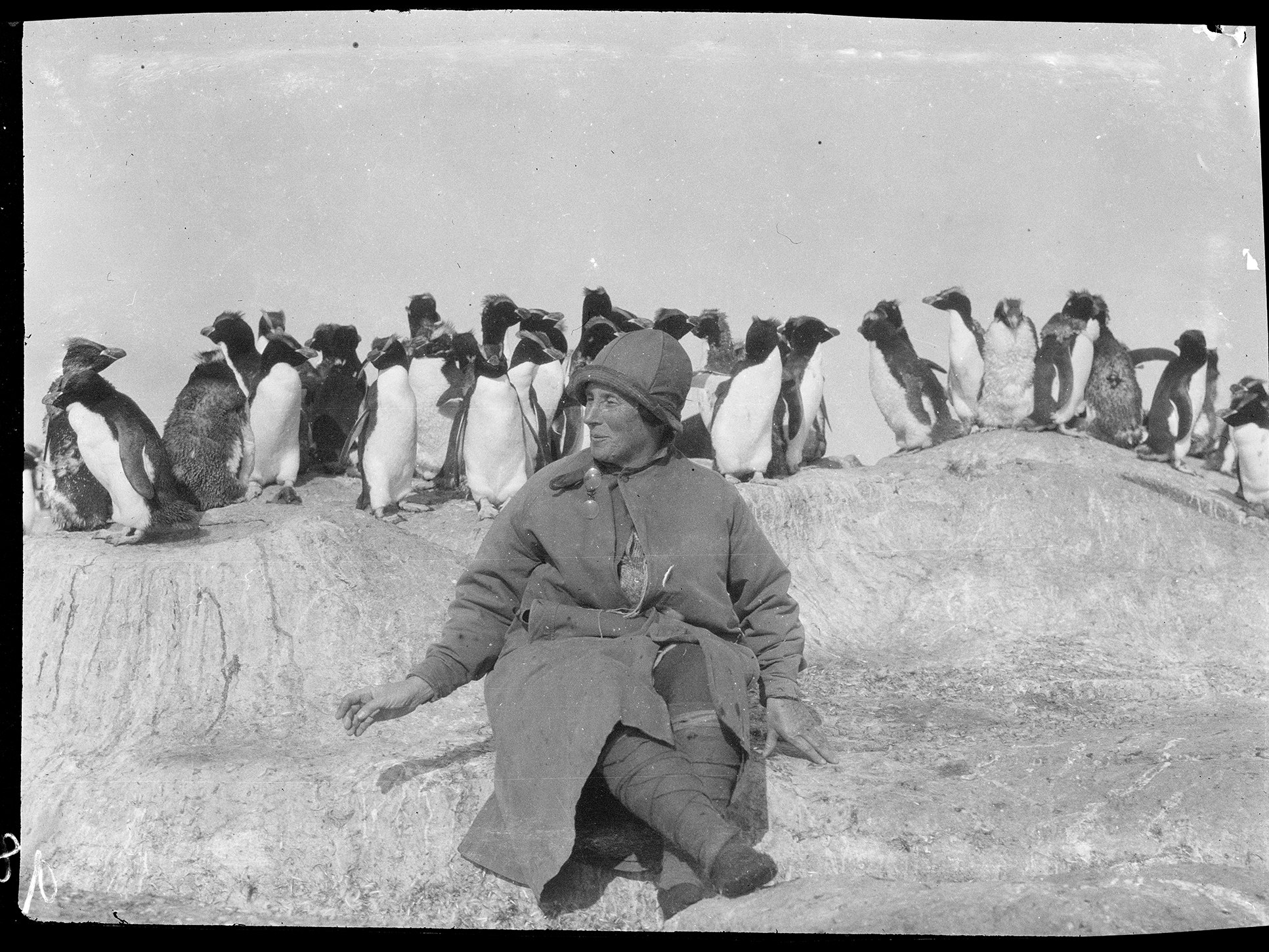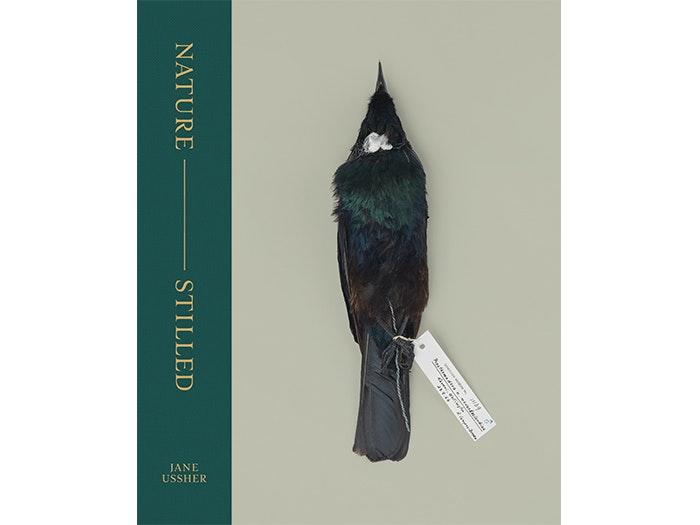
Q&A with Lissa Mitchell, author of Through Shaded Glass
Lissa Mitchell, the author of Through Shaded Glass: Women and photography in Aotearoa New Zealand 1860–1960, discusses her new book with Te Papa Press.
Free museum entry for New Zealanders and people living in New Zealand
Open every day 10am-6pm
(except Christmas Day)
Free museum entry for New Zealanders and people living in New Zealand
Shining the light on New Zealand’s women photographers.
Publication: June 2023
Extent: 368 pages
Format: Hardback
ISBN: 978-0-9951384-9-0
RRP: $75
Buy Through Shaded Glass
The contribution of women to the first century of photography has been overlooked across the world, including in New Zealand. With few exceptions, photographic histories have tended to focus on the male maker.
This important book tilts the balance, unearthing a large and hitherto unknown number of women photographers, both professional and amateur, who operated in New Zealand from the 1860s to 1960, either as assistants in the early studios or later running studios in their own right.
It takes the reader on a journey through the backrooms of nineteenth and early twentieth-century photographic studios, into private homes, out onto the street and up into the mountains, and looks at the range of photographic practices in which women were involved. Through superb images and fascinating individual stories, it brings an important group of photographers into the light.
Shortlisted for the NZ Booklovers Award for Best Lifestyle Book 2024, sponsored by Benefitz
Longlisted for the 2024 Ockham New Zealand Book Awards, Booksellers Aotearoa New Zealand Award for Illustrated Non-fiction
The Journal of New Zealand Studies, reviewed by Catherine Hammond. “Mitchell’s book is a major achievement. … Through Shaded Glass fills a significant gap in the existing literature and celebrates the contribution of so many previously unsung women makers.”
L’Oeil de la Photographie, reviewed by John B. Turner: “Mitchell is an astute editor of images and narrative. ... The result of her ongoing investigation which included interviewing living subjects over a number of years and collecting rare, authenticated examples of the work of early women photographers are what make her book such a valuable resource and springboard for future researchers.”
The Spinoff, Claire Mabey: “Lissa Mitchell’s Through Shaded Glass was similarly revelatory: unearthing women from the confines of archives and letting their work speak (you can read an excerpt on The Spinoff here).”
Landfall, reviewed by Mary Macpherson. “A lavishly-illustrated blockbuster of a book that reveals a whole world of women active at every level of photography … At a deeper level, these images … give us part of the history of our country across the centuries. It’s difficult not to be moved by this, and the book deserves to fly high at the next Ockham New Zealand Book Awards.”
Aotearoa New Zealand Review of Books, reviewed by Hamish Coney. “Mitchell’s decade of research has unearthed a wealth of wonderful images created by women in Aotearoa, and provided a powerful narrative that reveals their creators’ lives and motivations. Through Shaded Glass is both a corrective and a celebration, and will no doubt create a legacy in its own right, as a point of departure for future scholarship.”
NZ Booklovers, reviewed by Lyn Potter. “Lissa Mitchell has skilfully and successfully filled a gap in the history of women’s participation in photography in the Western world. She has amply succeeded in her aim of showing that in New Zealand, women from 1860-1960 did have access to photographic equipment and used it in all sorts of ways. … She is a very erudite photography historian but has written Through Shaded Glass in a very engaging and accessible way for the general reader. I found it unputdownable.”
The Post (premium content), reviewed by Mark Amery. “Through Shaded Glass impresses in providing a different window on our past than the other photographic history books on my shelves.”
Kete Books, reviewed by Jessica Agoston Cleary. “As one of Aotearoa’s most knowledgeable and experienced photographic historians, there is no one better than Lissa Mitchell to research, distill and re-contextualise the photographic history of our country … It is a whirlwind tour and it is well worth it.”
New Zealand Geographic, reviewed by Catherine Woulfe. “Mitchell’s text validates the various ways women participated in photography … her own mastery is clear on each page.”
Gisborne Herald (premium content), review by Wynsley Wrigley of the chapter on Gisborne photographers. “Gloriously illustrated publication … fascinating book.”
The Post (premium content), How I write: Lissa Mitchell.
Radio Waatea, interview with Dale Husband.
RNZ Nine to Noon, interview with Kathryn Ryan.
Plains FM, interview with Ruth Todd.
Publication: June 2023
Extent: 368 pages
Format: Hardback
ISBN: 978-0-9951384-9-0
RRP: $75
Buy Through Shaded Glass:

Lissa Mitchell, the author of Through Shaded Glass: Women and photography in Aotearoa New Zealand 1860–1960, discusses her new book with Te Papa Press.

Did you know that there were a lot of women photographers in Aotearoa New Zealand before 1960? To mark this year’s International Women’s Day, and its theme ‘inspire inclusion’, Photography Curator Lissa Mitchell introduces some of them and their stories.

Stunning photographs of remarkable natural history specimens from the Museum of New Zealand Te Papa Tongarewa